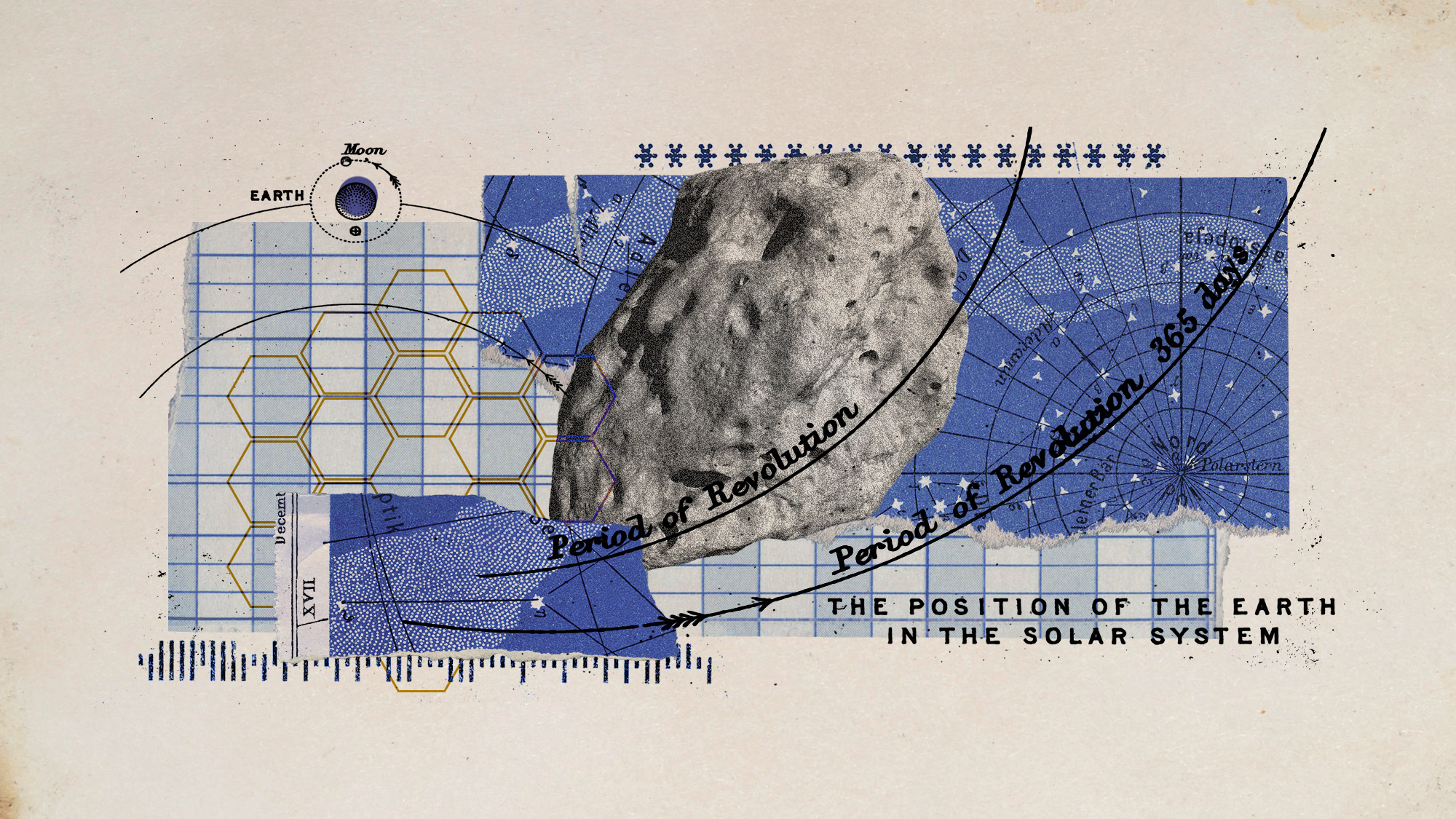How worried should we be about asteroids?
The odds of 2024 YR4 hitting Earth in 2032 have fluctuated wildly this week

A free daily email with the biggest news stories of the day – and the best features from TheWeek.com
You are now subscribed
Your newsletter sign-up was successful
You "may want to keep your head down" on 22 December 2032, said Time. That's the day an asteroid may strike our planet.
The chances of 2024 YR4 striking Earth increased this week to 1 in 32 but then dramatically fell to just 1 in 67 after further observations, leaving lots of people confused about just how worried we should be.
What did the commentators say?
2024 YR4 measures only 130 to 300 feet across, "a pebble" compared to the asteroid that "killed the dinosaurs", which is thought to have been six to nine miles in length.
The Week
Escape your echo chamber. Get the facts behind the news, plus analysis from multiple perspectives.

Sign up for The Week's Free Newsletters
From our morning news briefing to a weekly Good News Newsletter, get the best of The Week delivered directly to your inbox.
From our morning news briefing to a weekly Good News Newsletter, get the best of The Week delivered directly to your inbox.
But it's "moving fast" – about 38,000mph – and it's that "screaming speed" that causes even a relatively small asteroid to "pack such destructive force" because the energy is "dissipated when it collides with something like a planet".
Humanity "does not have to be a passive target", though, because Nasa could use a kinetic impactor mission similar to DART in 2022, which "succeeded wildly" when it successfully nudged a different asteroid and changed its orbit.
"It's far from panic stations" for Earth, said Sky News. This is partly because the asteroid is "made of a rocky substance", which means it could "break into smaller pieces if it enters Earth's atmosphere".
So "I'm not worried just yet", said Carrie Nugent, author of "Asteroid Hunters", in The Guardian, because "we’ve got time to prepare" and the asteroid is "not terribly large by asteroid standards".
A free daily email with the biggest news stories of the day – and the best features from TheWeek.com
Also, the surface of the Earth is "mostly water" and "most experts would agree" that a 40- to 90-metre asteroid-ocean impact could happen "without loss to human life or property".
Studies suggest that the "risk corridor" of expected impact covers the eastern Pacific Ocean, northern South America, the Atlantic Ocean, Africa, the Arabian Sea and South Asia, said Forbes.
But it's not just Earth that's under threat: current calculations from Nasa estimate a 0.8% impact probability – so, a 1-in-125 chance – that the asteroid will "hit the moon rather than Earth".
What next?
The asteroid is expected to disappear from view around April, so further observations are being "conducted in a hurry", said The Independent. It will not be possible to study it again until 2028 – "at which point it could be too late".
The James Webb Space Telescope, which has an infrared eye that allows it to track the asteroid further out than optical light telescopes, will improve our understanding of the asteroid, Robin George Andrews, author of "How to Kill an Asteroid", told Ars Technica. Its "first observations" should appear by the end of March.
Meanwhile, it's important that countries work together on the threat of asteroids because global cooperation is, "unsurprisingly for a threat that comes from the stars", absolutely "essential", said The Washington Post.
Chas Newkey-Burden has been part of The Week Digital team for more than a decade and a journalist for 25 years, starting out on the irreverent football weekly 90 Minutes, before moving to lifestyle magazines Loaded and Attitude. He was a columnist for The Big Issue and landed a world exclusive with David Beckham that became the weekly magazine’s bestselling issue. He now writes regularly for The Guardian, The Telegraph, The Independent, Metro, FourFourTwo and the i new site. He is also the author of a number of non-fiction books.
-
 How the FCC’s ‘equal time’ rule works
How the FCC’s ‘equal time’ rule worksIn the Spotlight The law is at the heart of the Colbert-CBS conflict
-
 What is the endgame in the DHS shutdown?
What is the endgame in the DHS shutdown?Today’s Big Question Democrats want to rein in ICE’s immigration crackdown
-
 ‘Poor time management isn’t just an inconvenience’
‘Poor time management isn’t just an inconvenience’Instant Opinion Opinion, comment and editorials of the day
-
 NASA’s lunar rocket is surrounded by safety concerns
NASA’s lunar rocket is surrounded by safety concernsThe Explainer The agency hopes to launch a new mission to the moon in the coming months
-
 Nasa’s new dark matter map
Nasa’s new dark matter mapUnder the Radar High-resolution images may help scientists understand the ‘gravitational scaffolding into which everything else falls and is built into galaxies’
-
 Moon dust has earthly elements thanks to a magnetic bridge
Moon dust has earthly elements thanks to a magnetic bridgeUnder the radar The substances could help supply a lunar base
-
 How Mars influences Earth’s climate
How Mars influences Earth’s climateThe explainer A pull in the right direction
-
 The ‘eclipse of the century’ is coming in 2027
The ‘eclipse of the century’ is coming in 2027Under the radar It will last for over 6 minutes
-
 NASA discovered ‘resilient’ microbes in its cleanrooms
NASA discovered ‘resilient’ microbes in its cleanroomsUnder the radar The bacteria could contaminate space
-
 Artemis II: back to the Moon
Artemis II: back to the MoonThe Explainer Four astronauts will soon be blasting off into deep space – the first to do so in half a century
-
 The mysterious origin of a lemon-shaped exoplanet
The mysterious origin of a lemon-shaped exoplanetUnder the radar It may be made from a former star